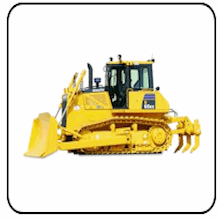Written on March 13, 2016 by Bay Area Landslide
Hauling Contractor / 925 202-2999 / Sausalito

Drag line excavator systems are heavy equipment that
is used in civil design, surface mining, and even
excavation.
With civil design, the smaller sized
kinds are utilized for road and also port construction. The
larger sorts of bother line excavators are utilized in
strip mining operations to draw out coal. These are
amongst the largest types of mobile devices as well as
evaluate upwards of 10,000 loads!
The nuisance line excavator bucket system contains
a huge container that is suspended from a boom.
The container is relocated by a number of chains as well as ropes. The
hoisting rope, which is powered by either a big
diesel or electric motor, will certainly support the pail
and even raise coupler assembly from the boom. The
pain rope on the assembly is made use of to attract the pail
assembly flat. Through seasoned maneuvering
of the hoist as well as pain rope, the pail can be
regulated for many different sorts of procedures.
Operation
With a typical excavation cycle, the container is
located high over the material that is being
excavated. The bucket is then lowered down as well as the
bother rope is drawn to make sure that the bucket is dragged
along the materials surface area. Making use of the hoist rope,.
the pail is then lifted. A swing procedure is.
after that done in order to move the pail to the.
area where the material is going to be dropped.
The drag rope is then released which will cause the.
pail to tilt, making the product in the pail.
drop, which is generally called a dump procedure.
With smaller sized bother line excavators, the container is.
tossed by ending up the jib then launching a.
hold on the pain cable television, which swings the pail.
like a pendulum. Proficient operators can make the.
bucket land concerning 1/2 the size of the jib even more.
away compared to if it had merely been rotated or dropped.
*https://www.youtube.com/watch?v=OwdaSZSUPy8
*https://www.youtube.com/embed/OwdaSZSUPy8
*https://youtu.be/OwdaSZSUPy8
Limitations.
The limitations of bother line excavators are the.
elevation and also size of their boom, as this restrictions.
where the bother line can discard waste product. Being.
fundamental with their building, the bother line.
is most effective when excavating material.
below the degree of their tracks. Drag lines.
aren’t ideal for packing piled up material.
In spite of their limitations and high funds price,.
pain line excavators continue to be preferred with.
a number of mines, as a result of their quite low waste extraction.
price, performance, as well as reliability.
They additionally have different reducing sequences. The.
Is the side casting approach which makes use of.
offest benches. This method involves throwing.
the overburden laterally onto blasted material to.
make a bench.
The 2nd approach is an essential pass. This pass will.
cut an element at the toe of the new highwall as well as will.
likewise shift the bench even more towards the low.
wall surface. This can also require a cutting pass if the.
wall is heavyset. A chopping pass will entail.
the container being fell onto a tilted.
highwall to scale the surface.
The next method is the slowest, called the.
blocks pass. This approach will nevertheless, move the.
most material. The blocks pass involves using.
the element to access the bottom of the material to.
raise it around spoil or to an elevated bench.
level. If needed, the final cut is a pull.
back, which draws the product back further to.
the reduced wall surface side.
For construction, mining, or excavation, pain line.
excavators are terrific to have. They can move even.
the most significant of material, which is wonderful for deep.
holes in the ground. If you’ve been looking for a.
terrific means to maximize mining or excavation performance,.
the pain line excavator is simply what you searching for.


There are no comments - Add Your Comment!